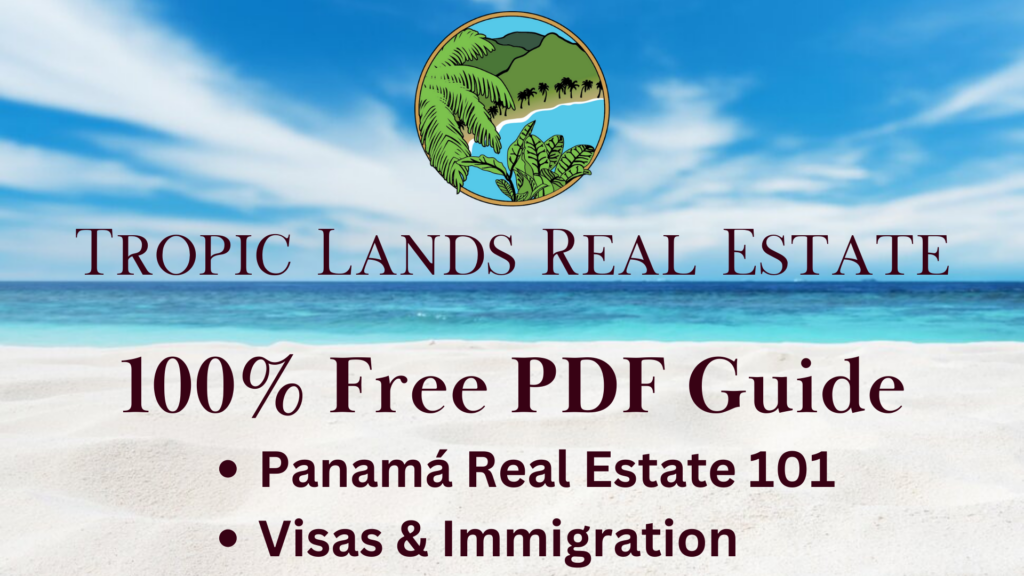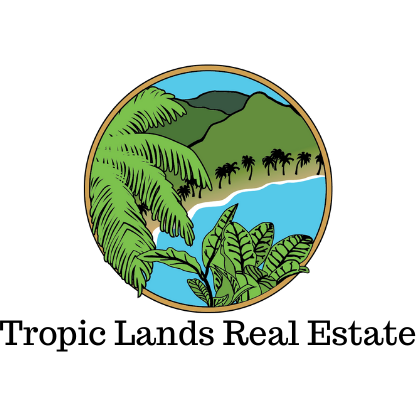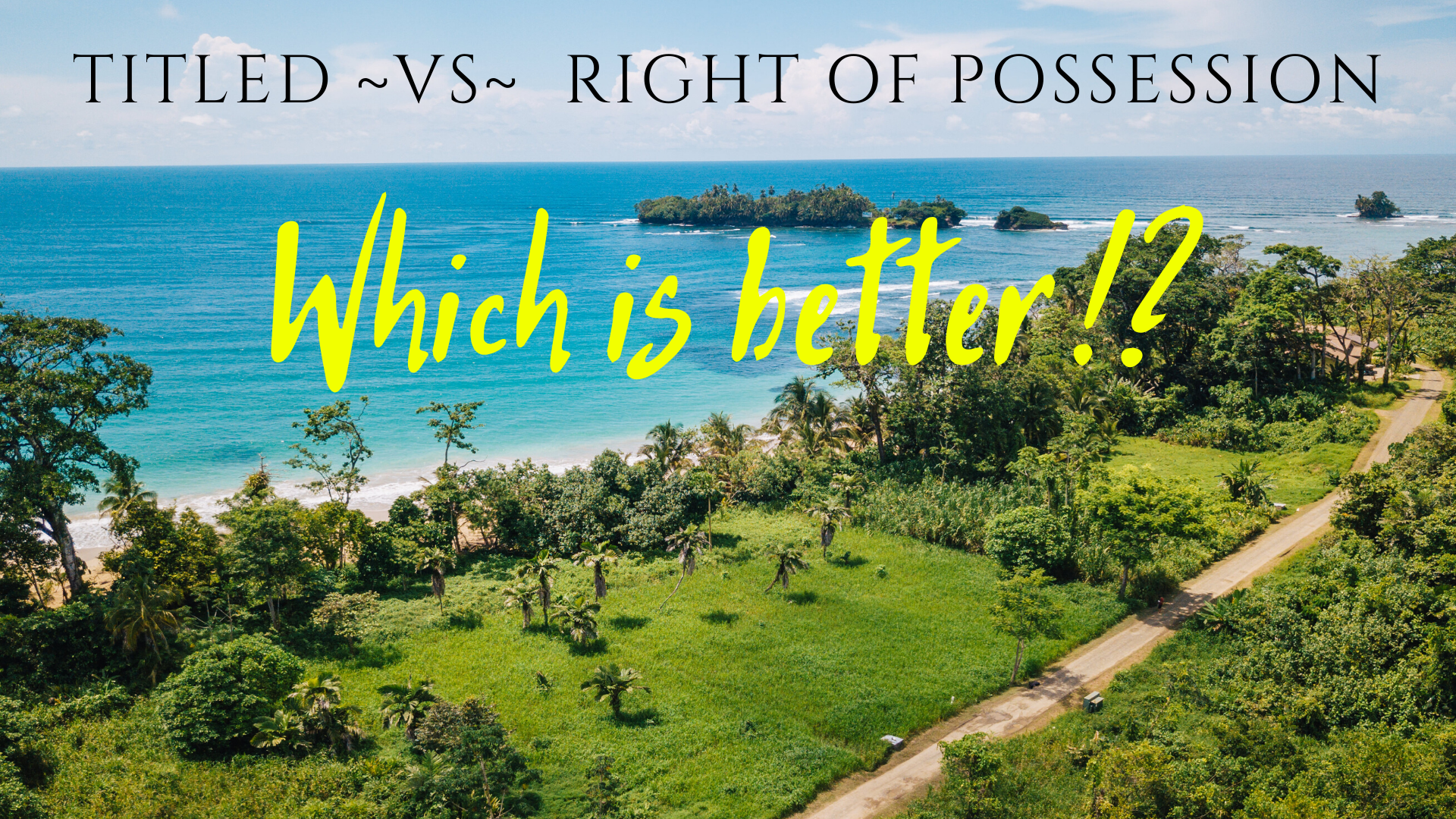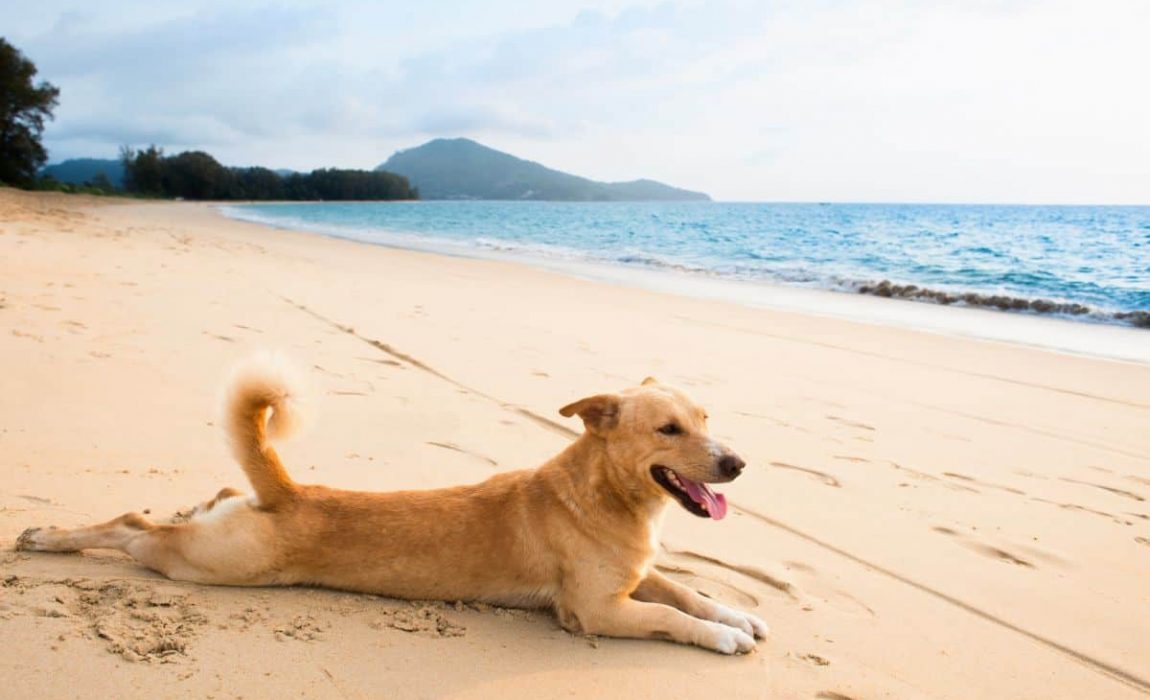For decades upon decades, perhaps even since the very first land title was given from an ancient king to a citizen of the kingdom, the debate of whether Titled property or Right Of Possession is better has continuously been ignited, with plenty of people quick to put down one or the other without explaining all of the reasons why. Then there are the horror stories, often pointing fingers at Right Of Possession property and those “dumb enough” to buy it, only to suffer the consequences soon after. But who wants to pay property taxes? Well clearly anyone who buys Titled land within the country of Panama doesn’t mind paying property taxes because that is one of the cons titled land comes along with. So, how about we settle this debate once and for all. In fact, how about we forget the entire idea that it is, or ever was a debate at all? Instead, we are going to line up the pros and cons of both titled and ROP property right in front of you, no makeup or bullshit, just the raw facts about each type. What you do with this information, and which type of property best suits your needs and preferences will be left entirely up to you.
Let’s get started.
First off, a general summary of land ownership in Panama plus the definitions and explanations of what Titled and ROP properties truly are.
One of Panama’s great benefits for expats, investors, and the like is the ability to buy and own land (permanently) as a foreigner, even if you aren’t a resident of the country! This already puts Panama ahead of the game in comparison to a lot of other foreign countries that may have some beautiful coastlines, islands, and mountain ranges but a strict law prohibiting foreigners from owning land, or allowing only a long term “lease” of the property. Though there are designated regions within Panama where you are NOT allowed to purchase land (indigenous territories, national parks, etc) the rest of the country is indeed “up for grabs”.
Whether you are a resident, a citizen, or even if you have never set foot within the country of Panama you are able to purchase property under your personal name, under the name of a Panamanian (or foreign) company, foundation, and more. This applies to both titled and ROP property though it is always recommended to keep ROP property under ownership of a company or foundation for legal reasons.
So why are there multiple types of properties within one single country? Interesting question, with an interesting answer. To put it relatively plainly, and with as few words as possible, most of the country was considered “frontier” back in the 1500’s and following few hundred years as the Spanish began to colonize Panama. Unfortunately, the arrival of the Spanish required the displacement of many indigenous groups from their homeland, forcing them to concentrate themselves in specific regions of the country or venture further out into the perilous jungles, uninhabited coastlines, and mountain ranges. The Spanish colonization of Panama for a substantial amount of time was primarily focused on Nombre De Dios, located on the Caribbean coastline where Rodrigo Bastidas first landed in 1501, and the original Panama City (now referred to as Panama Viejo) founded on the Pacific coast some 12 years later which would eventually become the capitol of Panama in 1524.
Now as you might imagine, the local indigenous tribes certainly weren’t fussing over documents, nor handing out deeds and titles to those who wanted to own a piece of the lush, exotic land found within Panama’s boundaries. During this time, its safe to say every piece of land within Panama was considered Right of Possession. He who lives on it, he who cultivates it, he who builds his home on it, he who keeps his horse on it, is the rightful owner. This is how the tribes operated back in the day, with the many tribes each having their own territory within the country where they primarily resided. Much like the United States and the “conquering” of the wild west frontier, it wasn’t until foreigners (the Spanish) arrived that property ownership became a matter of monetary payment, documentation, and titles/deeds. Naturally, the Spanish required a manner in which to keep track of who owned what, how big each property was, where that property was located, and how to identify the property easily. Thus began the system that Panama still uses today, of a property receiving a title/deed from the government upon purchase (or free if you were worthy or lucky”) stating who was the owner of the land, how much land he owned, and identifying this land with a specific number which Panama now refers to as a “numero de finca” or land number in english which is the most crucial aspect of every property deed.
As the Spanish expanded their colonization throughout Panama, thus the number of titled properties increased as settlers began to venture further out away from “civilization” in search of regions where a new life could be started. The government continued providing deeds to those who wished to settle on said land and rightly purchase it from the government, though there were also many who respectfully turned their back on the system and decided that simply occupying a piece of land, cultivating it, building their home on it, plus a nice wooden fence was sufficient to consider it legally theirs and fend off any intruders or those looking to acquire a piece of paradise for themselves.
Fast forward to present day, after numerous changes of allegiance between Spain, Colombia, and finally complete independence of Panama as a nation in the year 1903. The number of titled properties has reached the millions but so has the number of ROP properties because lets be honest, not everyone thought it necessary to pay the government for the right to consider a piece of vacant land in the middle of nowhere to be theirs. And who wants to pay property tax to the man anyways? Apparently quite a few people in the last hundred years did not, and the attitude still continues today prevalently.
So now we have a stunning tropical country dividing North America from South America, with hundreds of miles of beautiful Caribbean AND Pacific coastline plus over 1000 exotic islands. Within all of this paradise we have now a long list of titled, as well as ROP properties. The good news however, is that now even ROP property has seen a serious upgrade in its legal system of verifying who owns what, and since when. Typically both titled and ROP property purchases will include a formal contract or bill of sale, signatures of witnesses to the sale, an official property survey, plus a form of certification of ownership provided by the government. Well, then what exactly is the difference between the two???
Titled Property In Panama
Titled property in Panama offers one very important benefit which ROP property does not: A “property identification number” registered in the government’s system and accessible throughout the country as well as on the government’s public registry website. That means your property has its own ID such as 4958358 and this file (both digital and physical) can be accessed using this unique ID allowing the viewer to instantly see who is the owner of the property, when did they become the owner, where is the property located, and much, much more.
Other PROS of titled property are as follows:
- You may take out a loan in Panama using your titled property as collateral.
- It is practically impossible for someone to steal your land when it is titled.
- It is much easier to verify that you are buying a legitimate and legal piece of property clean of any issues.
- Titled property is always more valuable, and easier to sell once you decide to do so.
So how about the CONS of titled properties!
- Titled property is subject to a variable percentage annual tax, paid to the government and based on the registered value of your property.
- The sale of a titled property will come with a nice slap on the cheek in the form of a 5% tax of sale value.
- A titled piece of property can only be segregated 3 times (for a total of 4 parcels including original property) before you must start applying for special permits, or looking for loopholes in the system which often don’t work and can take months and even years to work out anyways.
- For those who prefer offshore privacy, technically speaking a titled piece of property is easier to discover than ROP as the only necessary action is to investigate with the public registry if there are any properties owned under your name or the name of your company/foundation, etc. Put simply, if someone wanted to find out if you own land in Panama, it wouldn’t be all that hard for them to do so.
Right of Possession Property in Panama
Although ROP property does not provide the same security benefit of being equipped with a unique identification number specific to that piece of property, it does provide a range of benefits which may in fact be even more appealing to you than the benefits of titled property!
The PROS of ROP Property
- No annual property tax!!! Thats right, even if your property is valued at $1,000,000 USD you will NOT be required to pay property tax to the Panamanian government
- 0-2% gains tax upon sale of the ROP property! Depending on the region of the country in which your property is located, and to which municipal district it pertains, you may not be required to pay any tax on the sale of your property! Imagine pocketing all $500,000 USD of that sale you just closed (minus commissions, and legal fees of course). In certain districts, a maximum of 2% of sale value is charged by the municipality, but hey, thats still a lot better than 5% right!?
- ROP properties are typically much cheaper to purchase.
- ROP property can be subdivided practically without limit
- Nearly all ROP properties can be titled, at an extra cost to the government, and lawyer facilitating the legal process for you
- If you prefer offshore privacy, ROP properties are registered only on a municipal level (often times maintaining only physical documents as record) with no digital record on a national level, making it much more difficult for an individual/entity/government to discover your real estate asset in Panama
Ok, that all sounds dandy, but what about the CONS of ROP property??
- As previously mentioned, ROP property does not receive a unique identification number, meaning it is a little more complicated to verify the history, current status, and legitimate owner of the property. This also relates to you, once you become the owner, as it will not be possible to simply search the property ID # in the public registry and see that you are the rightful owner
- YOU MUST POSSESS/OCCUPY YOUR PROPERTY! This is how the horror stories are created. Someone finds a beautiful piece of property on a seemingly endless tropical beach for a great price, pulls the trigger, and then leaves the country for the following 6 years practically abandoning his/her newly acquired real estate asset. If this property is not continuously looked after by a local in the area who maintains the fence, keeps the grass cut, and in general keeps a vigilant eye on your property then there is risk that someone may end up squatting on your property, assuming there is no current owner or the owner has up and left with no concern for his property any longer. If you haven’t purchased the property from an honest seller, or perhaps decided to skip the involvement of a real estate broker, then you may have missed crucial elements during the process of purchase that would otherwise protect you should the original seller decide you clearly no longer care about your property, thus proceeding to attempt yet another sale of it to somebody else (this is not legal)
- You must be absolutely fanatic about keeping both physical and digital record of your purchase and ownership of the property, as these documents and scanned copies will be your only source of proof should someone try to contest your ownership of the property in the future, or in case of a dispute over boundary lines, etc
- Extra due diligence! ROP property always requires extra due diligence and research into the history of the property, its current state legally, relations with neighboring properties and their owners, as well as a look at the seller and his/her credibility as the rightful and honest owner
- You are not permitted to take out a loan using ROP property as collateral
- ROP property may be a little more difficult to sell in the future, as many foreigners and expats prefer the security of titled property
Well, there you have it. That is the comprehensive list of PROS and CONS for both titled as well as ROP property. If you’ve read this far, then you likely have seen that both types of property have their numerous advantages, and disadvantages. To be completely honest with you, at the end of the day the property type that will best suit you, will depend completely on you. And who knows you better than you? Nobody! I recommend that you consider both options carefully, while also considering what you plan to use the property for, the purpose of your investment, your timeline for development or future sale of said property, and last but not least you must be brutally honest with yourself in regards to how much time, and attention you will truly be able to spend at your property or looking after it while away.
Sincerely I am a firm believer that both ROP and titled property can be excellent investments when done properly and with consideration of all involved elements. Hell, I myself have invested in both types of property here in Panama! At the end of the day, after all else has been considered, the most important factor of your real estate investment in the Republic of Panama will be the real estate broker you choose to assist you with the facilitation of your acquisition (hint, hint…)
Have a question about something we didn’t cover in this article? Want to discuss ROP and Titled property further? Don’t hesitate to get in touch at your earliest convenience!




